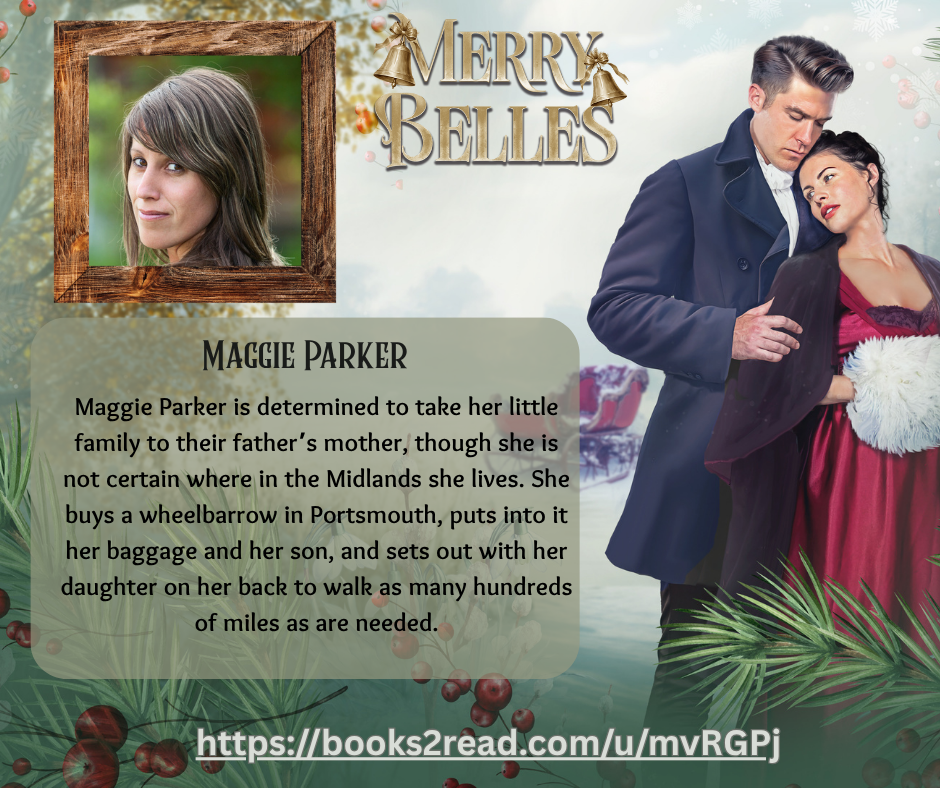
Lady Fernvale’s ball took a remarkable turn last night with the sudden reappearance, after many years, of a young scion of the Satterthwaite and Thurgood families, and his brutal rejection by the earls who head each family.
Some of us are old enough to remember when the charming but feckless and penniless Reginald Satterthwaite ran away with Lady Cristobel Thurgood, the beautiful young daughter of the then Earl of Crosby. The families, of course, wiped their hands of the young pair, leaving Reggie to his own devices – or, as it turned out, to the questionable influence of his own father, Mr. Percival Satterthwaite, at least until the young couple sadly met their ends, first Christobel and then Reggie.
If Reggie was half flash and half foolish, Percival was a devil. No one was surprised when he left England one step ahead of the debt collectors. The question at the time was, what had happened to Christopher Satterthwaite, the young child of Christobel and Reggie? Was he dead, too? Had he fled with his grandfather?
Presumably his godmother Lady Fernvale has the answers, for it was she who introduced him to the ton, and to the head of the Satterthwaite family, the Earl of Halton, and the head of the Thurgood family, the Earl of Crosby. These two gentlemen immediately, and in unequivocal terms, refused the acquaintance, leaving Mr. Christopher Satterthwaite standing repudiated and folorn.
He was not alone, however. Lady Fernvale stood by his side, and so did Miss Clementine Wright, the merchant’s heiress, who went so far as to slip her hand into the young man’s.
We have so many questions, dear reader, and will be asking them of those who might have the answers. Where has Mr. Satterthwaite been and what has he been doing? What do his relatives the earls know to his discredit? What is Miss Wright’s relationship with Mr. Satterthwaite, and can we expect wedding bells? Rest assured, we shall report to you as soon as we are better informed.
 The Secret Word
The Secret Word
(Book 10 in A Twist Upon a Regency Tale)
When Christopher Satterthwaite rescues Clementine Wright from would-be kidnappers, he is offered an opportunity he can’t refuse. Clemmie’s father, a wealthy coal magnate, has been looking for a husband for his only child. Someone with aristocratic bloodlines and no family—someone who can give him the blue-blooded heir he craves, without the interference of noble relatives.
Chris figures he and Clemmie can work together to keep Wright from controlling their every move. As their partnership develops, they fall in love. Wright doesn’t stand a chance against them. Or does he?
And what about the other men who are showing an interest in the child who is soon on the way? Chris’s reprobate grandfather is hanging around like a bad smell, and clearly has a scheme in mind. Chris’s more respectable relatives have not disowned him after all, and are eager to show the as yet unborn child with every advantage—because they regret not helping Chris as a child? Or for purposes of their own?
And then there is Ramping Billy O’Hara, the most sinister of them all, and Chris’s patron.
Some are villains. Some are on the side of the couple and their child. Only time will tell which is which.
https://www.amazon.com/dp/B0FM8R25VP
Excerpt from The Secret Word
Chris waited anxiously in the private room at Miss Clemens’ Book Emporium and Tea Rooms. He was about to meet cousins from both sides of the family, and he was far from certain about the reception he was about to get.
Clem squeezed his hands and he smiled at her. He wasn’t at all certain he would be facing this if not for her. She gave him strength.
She had done so at Aunt Fern’s ball. Both his mother’s brother, the Earl of Crosby, and his father’s cousin, the Earl of Halton, were there. Later, he found that the public repudiation had been organized by Aunt Fern. But whether they meant it or not was the question.
Both reacted with the same disdain when Chris was presented to them.
Lord Halton said, “Reginald Satterthwaite’s son? I have no wish to meet anyone associated with that scoundrel.”
And Lord Crosby looked Chris up and down and declared, “No, thank you, Lady Fernvale. With all due respect, I see no reason to acknowledge this person.”
Chris wanted the floor to open up and swallow him, and then Clem had slipped her hand into his, and all was right with his world. He had not had their approbation before, and had not felt the need for it. He did not need it now.
Nonetheless, as the minutes ticked by, he acknowledged to himself his deep yearning for a family. He would have Clem, of course. Somehow. With or without Wright’s blessing. But, for as long as he could remember, he had longed for brothers and sisters or—failing them—cousins. Perhaps, if this meeting went well, his children with Clem might grow up knowing their cousins.
The first to arrive was Lord Crosby’s son, a tall man with that gaunt, stretched look of a youth who was still growing—one who ate like a horse and put on no weight. “Are you the son of Reggie Satterthwaite, who ruined my father’s sister Christabel and ran off with her to Gretna Green?” he asked. “I am Michael Thurgood, Lord Crosby’s son and your mother’s nephew.”
He held out a hand to be shaken, so Chris figured his somewhat hostile first question could safely be ignored. “Clem,” he said, figuring a female—and a non-family member at that—might help to keep the conversation civil, “May I present my cousin Michael Thurgood? Thurgood, Miss Wright has done me the honor of accepting my suit. I have yet to convince her father.”
“Miss Wright.” Michael Thurgood’s nod was perfectly polite, but his attention remained on Chris. “Is it true, what Lady Fernvale said? That your grandfather abandoned you in the streets after your father died?” he demanded. “Father says he would have taken you in if you had come to him.”
Chris was about to protest that his nine-year old self had had no idea where the Earl of Halton lived, and no expectation of being welcomed, in any case. But they were interrupted by another arrival. A second man, this one around Chris’s age, so perhaps five or six years older than Thurgood.
Chris would have known him for a Satterthwaite, even if he had not been expecting him. He look more like Reggie, Chris’s father, than Chris did, though his hair and complexion were fairer and his chin was firm and determined where Reginald Satterthwaite’s had been weak. He wore the flashy uniform of a horse guard. “If you’re Satterthwaite, so am I,” he growled. “Hello, Thurgood.”
Thurgood nodded. “Satterthwaite.” He gained a bit of respect from Chris when he then turned to Clem. “Miss Wright, may I make known to you Captain Satterthwaite of His Majesty’s 27th Regiment of Horse, and Satterthwaite, this is our cousin Christopher Satterthwaite and his betrothed, Miss Clementine Wright.”
As with Thurgood, Satterthwaite greeted Clem politely, but then turned his attention back to Chris.
“Is it true you did not go overseas with your grandfather? My father wants to know why you didn’t come to us. We would not have turned you away.”
“You did,” Chris said, dryly. “Or at least, your grandfather had me and my grandfather thrown out of the house, and when my grandfather sent me back on my own, the butler would not let me in.”
“You were nine or ten,” the guard’s officer said.
“I was nine.”
“You went back out into the road, and then what?”
“I ran back to where my grandfather had been, but he was gone. I called out for him. I asked other people if they had seen him. Then I ran down the street he’d left by. But I never found him.”
“I saw you,” Satterthwaite said. “I was watching from the schoolroom. You turned at the corner. Do you remember? You shook your fist at the house.”
“I did,” Chris said. He had forgotten that detail until this moment. “I was angry with my grandfather and with yours.”










 Justin dragged himself out of bed to answer a thunderous cascade of knocks on his door. It was Victor Grant, who raised his brow at Justin’s appearance and said, “What does the schoolmaster get when he is late for school? Six of the best? Would you like me to administer them for you?”
Justin dragged himself out of bed to answer a thunderous cascade of knocks on his door. It was Victor Grant, who raised his brow at Justin’s appearance and said, “What does the schoolmaster get when he is late for school? Six of the best? Would you like me to administer them for you?”

 The Secret Word
The Secret Word

